Contributing to the discussion session in groups at the 10th Session of the 15th National Assembly on the afternoon of October 23 on the Population Law Project, delegate Nguyen Thi Quyen Thanh - Provincial Party Committee member, Vice Chairman of the Provincial People's Committee said that encouraging childbirth needs to be associated with ensuring conditions for "giving birth and raising children well".
 |
Delegate Nguyen Thi Quyen Thanh said: I highly agree with the necessity of promulgating the Population Law as stated by the Government in Submission No. 805/TTr-CP dated September 17, 2025. This is a very important law, aiming to fully institutionalize the Party's policy on population work in the new situation, especially Resolution No. 21-NQ/TW in 2017 and Conclusion No. 149-KL/TW in 2025 of the Politburo , with the orientation of "shifting the focus of population policy from family planning to population and development".
The Population Law not only regulates the number of births, but more importantly manages and promotes the quality, structure and distribution of population - the core factors of sustainable development, social stability and ensuring national defense and security.
The draft Law has initially stipulated four major policies: Maintaining replacement fertility; Minimizing gender imbalance at birth; Adapting to population aging and aging population; Improving population quality.
However, in my opinion, the draft needs to more clearly express the connotation of "population and development", because this is the consistent orientation in Resolution 21. Population must be considered in an organic relationship with the economy , society, environment and national security.
I agree with the review opinion of the Committee on Culture and Society, the draft Law should add a separate article on "State policy on population work" in Chapter I - "General provisions", clearly demonstrating the State's responsibility in ensuring living conditions, health care, education, housing and employment for the people; considering investment in population as investment in development.
In fact, Vietnam's fertility rate is decreasing rapidly. Vietnam's fertility rate is currently only 1.91 children per woman, among the top 5 lowest in Southeast Asia, and in some places is below the replacement level, especially in urban areas and areas with developed economic conditions. From 1999 to 2022, Vietnam's fertility rate remained stable around the replacement level (2.1). However, in the past two years, the fertility rate has decreased rapidly, from 1.96 children per woman in 2023 to 1.91 children per woman in 2024 - the lowest level in history. This is also the third consecutive year that Vietnam's fertility rate has fallen below the replacement level, according to the Ministry of Health. Therefore, a policy to maintain the replacement level fertility is extremely urgent.
According to experts, Vietnam is affected by many factors such as work pressure, financial difficulties, career development priorities and changing social perceptions. In rural areas, women often have more children due to early marriage, influenced by customs and practices, especially in remote areas.
I agree with the groups of solutions proposed in the draft, however Vietnam needs to develop practical support policies such as reducing child-rearing costs, housing support and changing social awareness. I would like to suggest some points:
First, shift from short-term support to long-term, sustainable policies, such as social housing, health care, preschool education, and reducing the burden of child-rearing costs on couples. Encouraging childbearing needs to be linked to ensuring conditions for “giving birth and raising children well”.
Many countries around the world have implemented strong policies to prevent the decline in birth rates. South Korea - the country with the lowest birth rate in the world - has tripled its budget for birth promotion programs and provided large financial subsidies to families who have children. In Hungary, women who give birth to four or more children are exempt from personal income tax for life.
Second, to ensure fairness among women groups, especially informal sector workers, I propose expanding support policies not only for women giving birth but also towards direct support for children born - such as child-rearing allowances, education costs for preschool or primary school children in low birth rate areas, ethnic minority areas, mountainous areas, industrial zones, and disadvantaged areas.
In addition, it is necessary to study policies to support infertility treatment, because this is a growing group of people, especially among urban youth.
Vietnam is entering a period of rapid population aging, with an estimated 1 in 5 people over 60 years old by 2036. This is a big challenge if we do not prepare in time. I agree with the proposal to add regulations on state responsibility in developing and implementing population aging policies in the direction of promoting healthy aging. The State needs to have appropriate social security, health and rehabilitation policies, and encourage the development of community-based elderly care models, linked with health insurance and voluntary social insurance.
In particular, investing in the elderly should be considered an investment for the future, because this is an experienced force that can make positive contributions to society if properly supported.
For population work to be effective, it must rely on digital transformation and accurate data. I propose that the draft Law should clearly stipulate the connection, sharing, and security of information in the National Population Database to serve population and development policy planning; Strongly apply technology in population management, forecasting, and service provision, such as reproductive health counseling, prenatal screening, and elderly care. This will both improve the effectiveness of state management and create conditions for people to access services quickly and transparently.
Many policies of the Law are assigned to localities for implementation, but not all localities have sufficient financial capacity. Therefore, it is recommended that the Drafting Committee study the direction of clearly stipulating the minimum support level guaranteed by the central budget, and localities can supplement it according to their capacity. Specifically, Clause 4, Article 24 assigns provincial-level local authorities to support the cost of purchasing health insurance cards for the elderly who do not have cards. For ethnic minority areas, border areas, and islands, there should be a specific population policy, linked to population stability, sustainable development, and ensuring national defense and security.
In addition, it is recommended that the drafting committee study policies to promote the socialization of population work - mobilizing businesses, organizations and people to participate. Because this is a common trend in developed countries, both reducing the budget burden and spreading the spirit of community responsibility; there should be policies to encourage businesses to participate, such as allowing tax deductions for investment costs in building nurseries and childcare areas at the workplace; Credit and land incentives for businesses to build elderly care centers, reproductive health counseling facilities; Encourage public-private partnerships in building geriatric hospitals, nursing homes, and marriage and family counseling centers. Experience from Japan, Korea, and Singapore shows that when businesses and society share responsibility with the State, population work is more effective, both ensuring workers' rights and promoting sustainable development.
The Population Law Project is strategic, contributing to the formation of “Vietnamese human resources for comprehensive development” – healthy, knowledgeable, socially responsible. It is recommended that the Government, the Ministry of Health and the drafting agency continue to review and research the draft Law to ensure feasibility, consistency, and suitability to reality, so that when the Law is promulgated, it will truly enter life, creating momentum for sustainable development of the country.
BT (record)
Source: https://baovinhlong.com.vn/thoi-su/202510/gan-khuyen-khich-sinh-con-voi-dieu-kien-nuoi-con-1f10734/




![[Photo] Prime Minister Pham Minh Chinh meets with South African President Matamela Cyril Ramaphosa](https://vphoto.vietnam.vn/thumb/1200x675/vietnam/resource/IMAGE/2025/10/23/1761226081024_dsc-9845-jpg.webp)

![[Photo] President Luong Cuong holds talks with South African President Matamela Cyril Ramaphosa](https://vphoto.vietnam.vn/thumb/1200x675/vietnam/resource/IMAGE/2025/10/23/1761221878741_ndo_br_1-8416-jpg.webp)
![[Photo] Prime Minister Pham Minh Chinh chairs meeting on railway projects](https://vphoto.vietnam.vn/thumb/1200x675/vietnam/resource/IMAGE/2025/10/23/1761206277171_dsc-9703-jpg.webp)


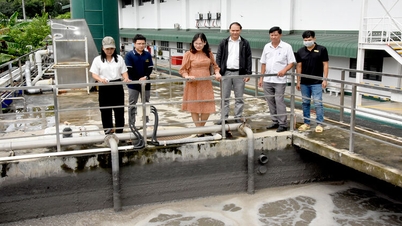
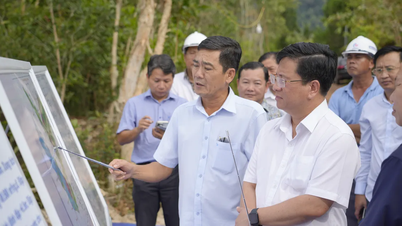















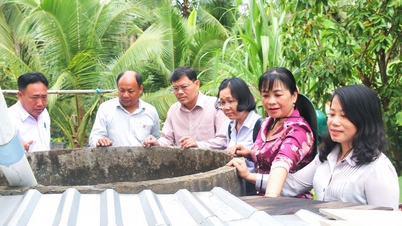
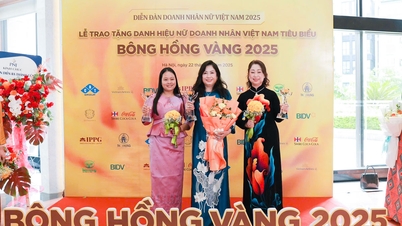






































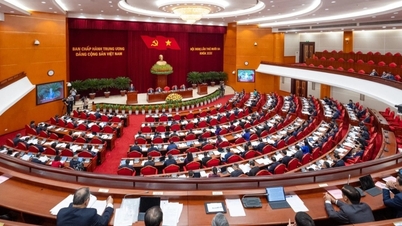









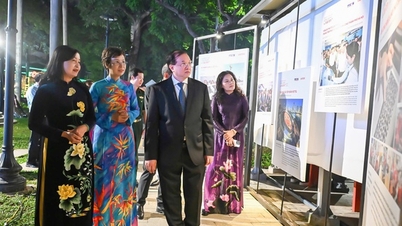





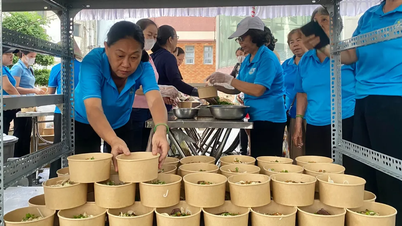
















Comment (0)